Matthew D. Whiting
A Robotic System for Precision Pollination in Apples: Design, Development and Field Evaluation
Sep 30, 2024



Abstract:Global food production depends upon successful pollination, a process that relies on natural and managed pollinators. However, natural pollinators are declining due to different factors, including climate change, habitat loss, and pesticide use. Thus, developing alternative pollination methods is essential for sustainable crop production. This paper introduces a robotic system for precision pollination in apples, which are not self-pollinating and require precise delivery of pollen to the stigmatic surfaces of the flowers. The proposed robotic system consists of a machine vision system to identify target flowers and a mechatronic system with a 6-DOF UR5e robotic manipulator and an electrostatic sprayer. Field trials of this system in 'Honeycrisp' and 'Fuji' apple orchards have shown promising results, with the ability to pollinate flower clusters at an average spray cycle time of 6.5 seconds. The robotic pollination system has achieved encouraging fruit set and quality, comparable to naturally pollinated fruits in terms of color, weight, diameter, firmness, soluble solids, and starch content. However, the results for fruit set and quality varied between different apple cultivars and pollen concentrations. This study demonstrates the potential for a robotic artificial pollination system to be an efficient and sustainable method for commercial apple production. Further research is needed to refine the system and assess its suitability across diverse orchard environments and apple cultivars.
Robotic Pollination of Apples in Commercial Orchards
Nov 21, 2023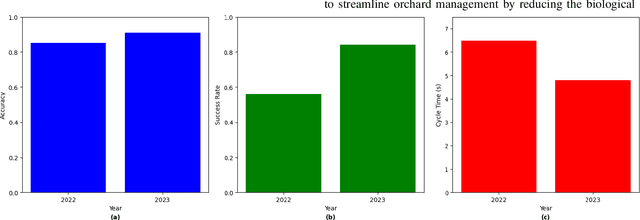
Abstract:This research presents a novel, robotic pollination system designed for targeted pollination of apple flowers in modern fruiting wall orchards. Developed in response to the challenges of global colony collapse disorder, climate change, and the need for sustainable alternatives to traditional pollinators, the system utilizes a commercial manipulator, a vision system, and a spray nozzle for pollen application. Initial tests in April 2022 pollinated 56% of the target flower clusters with at least one fruit with a cycle time of 6.5 s. Significant improvements were made in 2023, with the system accurately detecting 91% of available flowers and pollinating 84% of target flowers with a reduced cycle time of 4.8 s. This system showed potential for precision artificial pollination that can also minimize the need for labor-intensive field operations such as flower and fruitlet thinning.
Design, Modeling, and Control of a Low-Cost and Rapid Response Soft-Growing Manipulator for Orchard Operations
Nov 01, 2023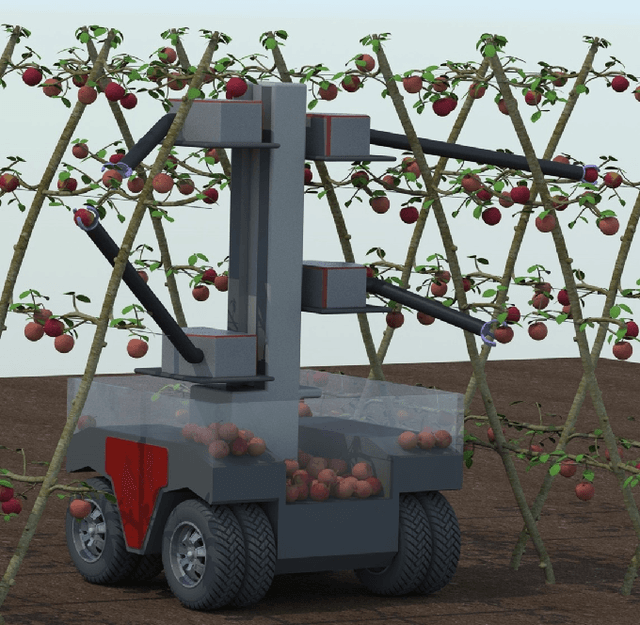
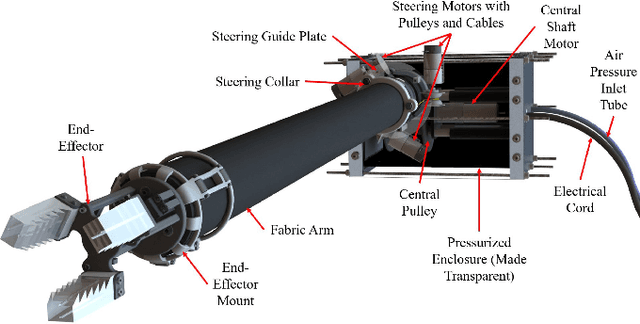
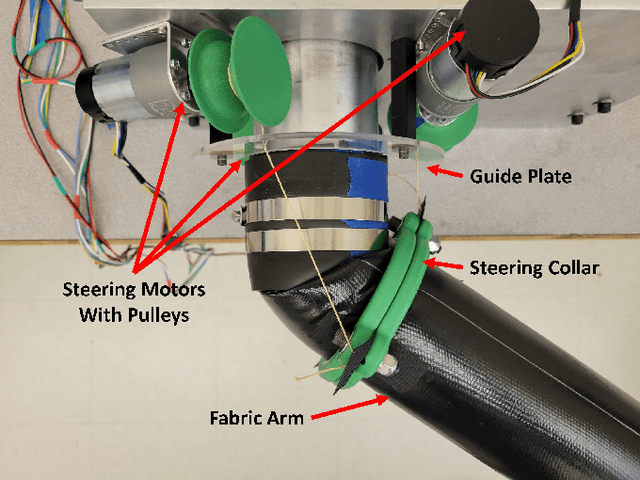
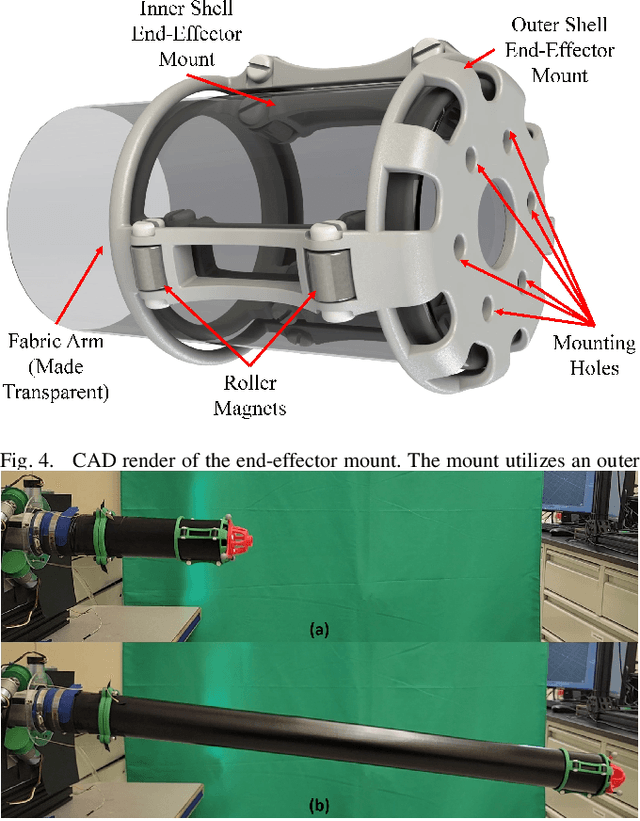
Abstract:Tree fruit growers around the world are facing labor shortages for critical operations, including harvest and pruning. There is a great interest in developing robotic solutions for these labor-intensive tasks, but current efforts have been prohibitively costly, slow, or require a reconfiguration of the orchard in order to function. In this paper, we introduce an alternative approach to robotics using a novel and low-cost soft-growing robotic platform. Our platform features the ability to extend up to 1.2 m linearly at a maximum speed of 0.27 m/s. The soft-growing robotic arm can operate with a terminal payload of up to 1.4 kg (4.4 N), more than sufficient for carrying an apple. This platform decouples linear and steering motions to simplify path planning and the controller design for targeting. We anticipate our platform being relatively simple to maintain compared to rigid robotic arms. Herein we also describe and experimentally verify the platform's kinematic model, including the prediction of the relationship between the steering angle and the angular positions of the three steering motors. Information from the model enables the position controller to guide the end effector to the targeted positions faster and with higher stability than without this information. Overall, our research show promise for using soft-growing robotic platforms in orchard operations.
 Add to Chrome
Add to Chrome Add to Firefox
Add to Firefox Add to Edge
Add to Edge